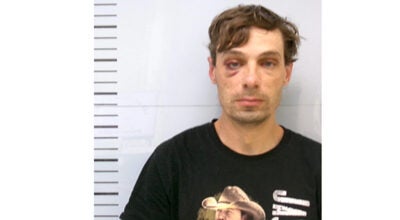Catholic abuse case settled cheaply in Mississippi Delta, but lifetimes of scars endure
Published 8:27 am Tuesday, August 27, 2019
The abuse they say they endured at the hands of two Franciscans, Brother Paul West and Brother Donald Lucas, included beatings, rape, and other sexual violations beginning when they were nine and 10 years old.
The Franciscans tried to settle with one of La Jarvis’s cousins, Joshua K. Love, by offering to pay him up to $10,000 to cover the cost of a used car, maintenance and insurance. Joshua, who has limited reading and writing skills, rejected the offer but later signed a confidential agreement for $15,000 — something he now regrets.
“They felt they could treat us that way because we’re poor and we’re black,” Joshua said of the settlements he and La Jarvis received.
Catholic officials have been promising to end the cover-up of clergy abuse for nearly two decades. In 2002, the United States Conference of Catholic Bishops approved the Charter for the Protection of Children and Young People, pledging to respond to abuse allegations in an “open and transparent” manner. And earlier this year, Pope Francis issued a new church law requiring Catholic officials worldwide to report sexual abuse — and the cover-up of abuse — to their superiors.
But the confidential deals the Franciscans reached with La Jarvis and Joshua show that, in some cases, the American church continues efforts to limit financial fallout and keep sexual abuse under wraps — as it did in the years before 2002 when settlements with victims were routinely arranged in secret for small sums of money.
Gannon, during interviews with the AP, said he believes that both La Jarvis and Joshua were abused and acknowledged that the settlements are less than generous.
“We’ve hurt them tremendously and no amount of money would ever account for what happened to them,” he said.
Asked if the Loves’ race or poverty had anything to do with the size of the settlements they were offered, Gannon said: “Absolutely not.”
Gannon also said the Franciscans have no intention of enforcing the confidentiality clauses, noting that La Jarvis and his cousins have discussed the settlements among themselves.
“There is no confidentiality,” he said. As for why the non-disclosure agreements were included, in violation of the American bishops’ 2002 charter, he said, “The lawyers put it in there. I can’t give you a good answer on that.”
West declined to answer questions for this story, and Lucas died in 1999. The Jackson diocese, for its part, has found the allegations against West and Lucas “credible” and has notified the local district attorney.
‘I don’t want to remember’
The Mississippi Delta stretches nearly 250 miles, from Memphis in the north to Vicksburg in the south. It is 40 miles wide, uniformly flat, and etched by rows of cotton, soybeans and corn, all running to a distant, sweltering horizon.
Near its heart lies Greenwood, a small city of 15,000 with a legacy that looms far larger. It was a flashpoint during the voter registration drives of the civil rights movement, and the Delta is where guitar legend B.B. King and other blues players got their start.
It is also a place where the conditions that gave rise to the blues continue to haunt everyday life: racism, unemployment, despair, and a more recent scourge — drugs.
La Jarvis, Joshua and Joshua’s brother Raphael grew up in a neighborhood known as Baptist Town, a collection of humble, single-story houses due east of the city center, literally on the other side of the tracks. Often, more than 10 people in their extended family were crowded into their three-bedroom home.
Among them was their grandmother, family matriarch Lou Alice Bolden. Known as “Miss Lou,” Bolden was born a Baptist but converted to Catholicism in 1964, after a Franciscan missionary baptized her infant son at a local hospital.





